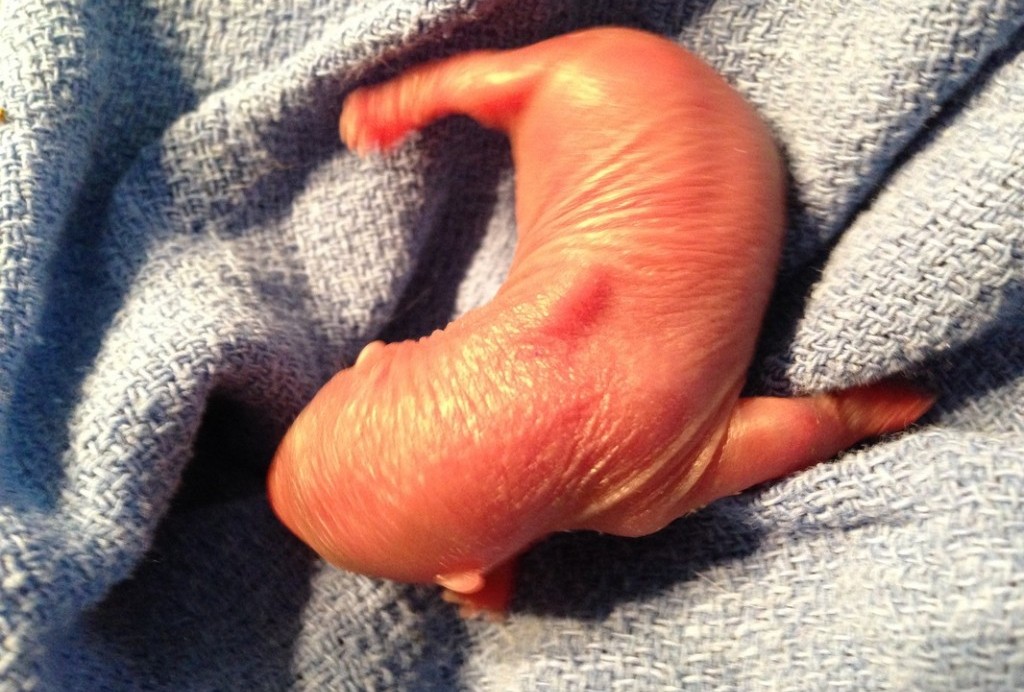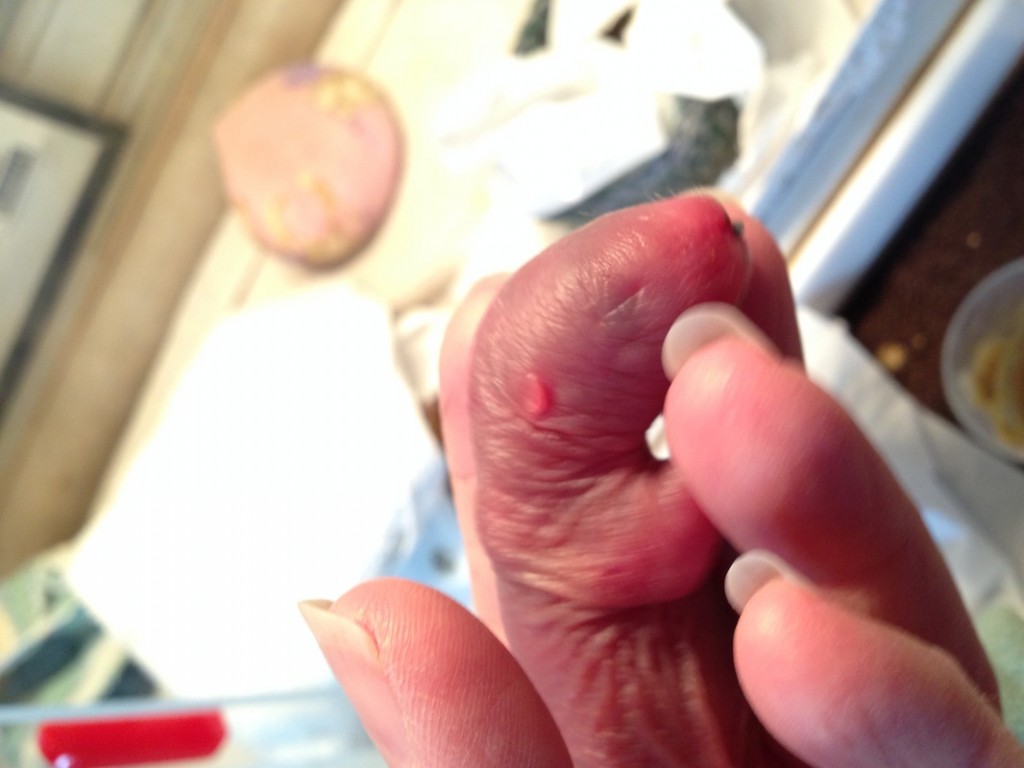Their story, 48 hours later

 Arriving home, a man realized he had left his dog out in the fenced yard all day, something he never did. The dog had caught a woodchuck and the ground hog was in shock. Feeling really bad for the woodchuck he called and found a wildlife intern Elena. The student took the woodchuck in, noted the shock and called a vet at the Wildlife Center of Virginia, but they were three hours away and referred her to us.
Arriving home, a man realized he had left his dog out in the fenced yard all day, something he never did. The dog had caught a woodchuck and the ground hog was in shock. Feeling really bad for the woodchuck he called and found a wildlife intern Elena. The student took the woodchuck in, noted the shock and called a vet at the Wildlife Center of Virginia, but they were three hours away and referred her to us.
The woodchuck arrived early the next day. The fur was still matted with dog saliva. We quickly checked her trying to avoid further stress. No breaks were palpated but I noted she was a female. My heart sank. Do I try to hydrate and send her back out knowing she might have “kits” or “pups” in her burrow since it is baby season. The kits would be getting cold and hungry without her. Being a rehabber is not easy. We make multiple hard decisions every day. Past experience has taught me that caught by dogs victims are bitten hard and shaken thus bruising and internal damage. She began to show some attitude, a good indication, but gut instincts said I should keep her for observation. Minimal damage would be bruising and muscular pain. Was I right?
I placed her in a cage, covering it to help alleviate her stress. Wild adult animals need dark and quiet areas for them to feel safe when they are rescued. I filled her cage with native greens, vegetables, and water. Periodic checks showed she was eating but not acting aggressive or alarmed when I checked on her which concerned me. Keeping her comfortable and calm was the plan, hoping to see her more active after resting. During evening rounds I discovered she had just given birth. I immediately felt a pang of guilt; I had made the decision to keep her. Wild animals, especially adults are stressed from the capture, attack and being in captivity. Many times in these circumstances animals abandon their young.
Her kit was stillborn. Was it from the dog attack, captivity, I will never know. Again, I wondered if there were other babies left behind in the den. I had to push that thought out of my mind. I noted she was not eating anymore and concerned by my limitations, I made arrangements for transport to WCV early the next morning. I arose early in order to meet the transporter at the interstate 30 minutes away. I ran
back to the rehab room and peeped in to check on her, only to be shocked. Three more babies had been delivered and lay scattered in the bottom of the cage. Gloving up, I reached in, one was dead and two were ice cold and struggling. Mom never braced to protect them, making me think she was still birthing. I gathered the three and placed the two surviving neonates in an incubator. Well, we are 48 hours into their life. My husband, Lucky is helping feed them every two hours 24 hours a day, our spring interns have not arrived. We keep colostrum in the freezer for these rare occasions and we added it to their formula. Will they make it? We know their chances are slim. Newborns mammals need colostrum from their mother the first few hours or days, providing essential antibodies and flora for the GI tact. We have additives but will it be enough? I do not know. I know the mother stayed alive long enough to deliver her pups, only to pass away afterwards. Her death affected us both. We are providing these babies with everything in our rehab arsenal that is possible to help them survive; “failure to thrive” is what we see at this young age. Hopefully this story will not end soon but will have a wonderful outcome.
In the rehab and rescue community, it is proven that care givers burn out due to how we deal with our rescue efforts. We can easily remember the sad and difficult cases, but ask us about the cases we save and it takes us much longer to recall. Daily, I realize that I do this to myself and try not to dwell on the heart wrenching cases. I understand that this replicates a ½ glass empty versus full phenomenon, but I am committed to saving the weak and orphaned. Therefore, it hurts to so much to lose this battle but this is the reality of being a rehabber.
Sabrina and Lucky Garvin